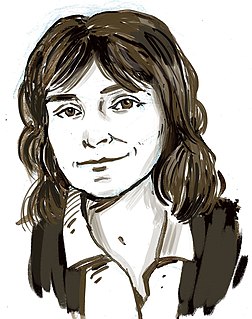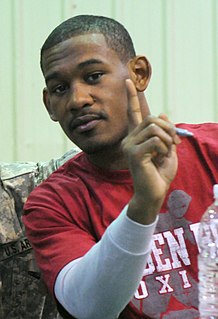A Quote by Bertrand Russell
The doctrine (of) maintaining that the language of daily life, with words used in their ordinary meanings, suffices for philosophy . . . I find myself totally unable to accept . . . . Because it makes almost inevitable the perpetuation amongst philosophers of the muddle-headedness they have taken over from common sense.
Related Quotes
Mathematics is often erroneously referred to as the science of common sense. Actually, it may transcend common sense and go beyond either imagination or intuition. It has become a very strange and perhaps frightening subject from the ordinary point of view, but anyone who penetrates into it will find a veritable fairyland, a fairyland which is strange, but makes sense, if not common sense.
Almost in the same way as earlier physicists are said to have found suddenly that they had too little mathematical understanding to be able to master physics; we may say that young people today are suddenly in the position that ordinary common sense no longer suffices to meet the strange demands life makes. Everything has become so intricate that for its mastery an exceptional degree of understanding is required. For it is not enough any longer to be able to play the game well; but the question is again and again: what sort of game is to be played now anyway?
I often recall these words when I am writing, and I think to myself, “It’s true. There aren’t any new words. Our job is to give new meanings and special overtones to absolutely ordinary words.” I find the thought reassuring. It means that vast, unknown stretches still lie before us, fertile territories just waiting for us to cultivate them.
I hope and believe my co-religionists understand and admit that I disclaim their theology in toto, and that by no twisting of language or darkening of its meanings can I be made to have any thing whatever in common with them about religious matters... they must take my word for it that there is nothing in common between their theology and my philosophy.
I myself, a professional mathematician, on re-reading my own work find it strains my mental powers to recall to mind from the figures the meanings of the demonstrations, meanings which I myself originally put into the figures and the text from my mind. But when I attempt to remedy the obscurity of the material by putting in extra words, I see myself falling into the opposite fault of becoming chatty in something mathematical.
Common sense is not something rigid and stationary, but is in continuous transformation, becoming enriched with scientific notions and philosophical opinions that have entered into common circulation. 'Common sense' is the folklore of philosophy and always stands midway between folklore proper (folklore as it is normally understood) and the philosophy, science, and economics of the scientists. Common sense creates the folklore of the future, a relatively rigidified phase of popular knowledge in a given time and place.
I'm not an expert in the deck at all. My interest lies somewhere near a sense that words are like tarot cards, and that a poem manipulates unpredictable depths with its words. . . . I like the tarot because it works like poetry and because you don't really have to 'believe in' anything. It's there to be used. The symbols are remarkably durable and beautiful; they float out to encompass all kinds of meanings.
When we call something unfair or indecent or unconscionable or evil, when we speak of mercy and pity and compassion, those words have meaning, regardless of our particular faith or moral philosophy. They appeal to common standards we all are expected to understand and accept, standards without which we could not live any common life at all.
Logical investigations can obviously be a useful tool for philosophy. They must, however, be informed by a sensitivity to the philosophical significance of the formalism and by a generous admixture of common sense, as well as a thorough understanding both of the basic concepts and of the technical details of the formal material used. It should not be supposed that the formalism can grind out philosophical results in a manner beyond the capacity of ordinary philosophical reasoning. There is no mathematical substitute for philosophy.



































